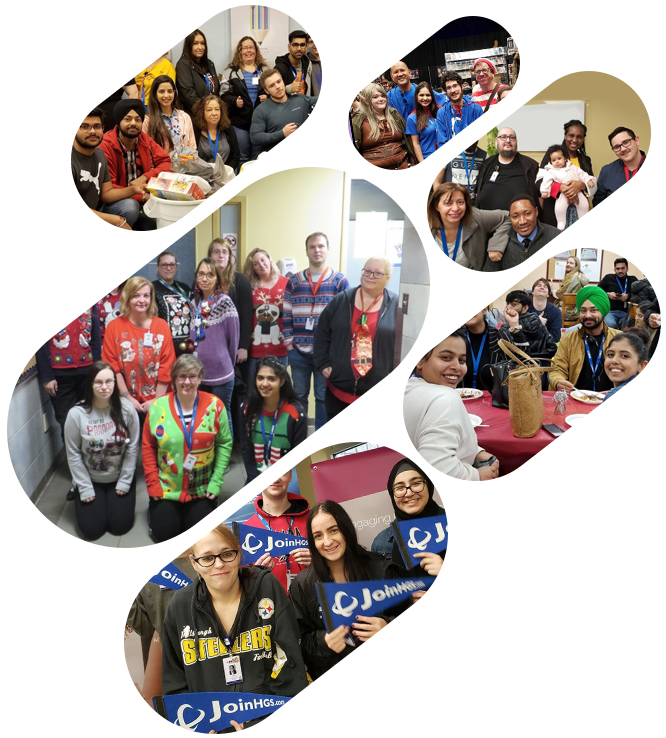
If you're looking for how to find the right career, then you're at the right place. The labour market is changing rapidly in regions like Canada. New industries are emerging, in-demand skills are shifting, and people are asking everything from “how to find the right job?” to “how do I find my dream job?”. This step-by-step guide will help you clarify your priorities, identify learning opportunities, construct a plan, and proceed with confidence toward work that aligns with your strengths and values.
Essential Steps to Identify the Right Career for You
Finding meaningful work takes both reflection and practicality. Start with self-discovery, then research industries and roles. Set clear goals, reskill where needed, and build a network that keeps you informed about opportunities. These tried-and-tested steps will keep the process manageable and productive.business objectives.

Self-Assessment: Understand Your Strengths, Passions, and Values
Before you chase titles, ask questions like how to know what job is right for you and how to know what career is right for you. List your top skills, interests, values, and the working conditions you prefer (remote, hybrid, office). Match those with roles that play to your strengths; this is how you begin to find your ideal career rather than settling for whatever’s available.
Research Emerging Industries and Trends
Peer outside the comfort of traditional job boards. Read industry reports, labour market projections, and employer trends to understand how to navigate the right career path in expanding sectors. If sector-based options interest you, reading field-based entries, such as those related to contact centres, allows you to identify realistic points of entry and career progression. For instance, if customer experience interests you, reading about careers in the contact center industry can inform you about typical roles and career advancement.
Steps to Conduct Research
Here are some practical steps you can follow to conduct effective career research and stay ahead in today’s competitive job market:

Stay Updated with Industry Reports
Subscribe to government labour websites and newsletters to follow in-demand roles and international trends. Apply that information to pursue jobs that are hiring today and are most likely to continue growing. In-demand jobs in Canada provide a snapshot of the immediate job openings being hired by employers.
Identify High-Demand Skills
Align your existing skills with the skills employers mention in job postings. If analytics, cloud software, or digital communication make them part of your learning plan and résumé.
Attend Industry Events and Webinars
Webinars and virtual job fairs are great ways to ask hiring managers about day-to-day work, career paths, and how candidates can stand out.

Set Clear Career Goals and Develop a Roadmap
When you set your goals, you take action. Try finding answers to how to get the ideal career for me using concrete timelines.
How to Set Career Goals:
When setting career goals, it’s important to balance short-term actions with long-term vision, here’s how you can structure them effectively:
Short-Term Goals
Set a 3-6 month goal (finish a course, improve your CV, apply to 10 well-matched roles).
Long-Term Goals
Consider “1-3 year goals”: the job you desire, skills to learn, or certifications to obtain. This addresses how to find your perfect career path.
Break it Down
Break big goals into weekly actions. Small, consistent steps create significant results, such as how to find your ideal job.
Upskill and Reskill: Invest in Yourself
Most employers want both technical and soft skills. The best way to be future-ready is through continuous learning and development.

Ways to Upgrade Your Skills
Choose practical courses that add portfolio pieces and strengthen your résumé for your target roles, and fit with how to find your ideal job in your selected field of work.
Take Online Courses
Online learning platforms offer flexible and affordable courses across various industries. These courses allow you to upskill at your own pace, add practical projects to your portfolio, and stay competitive in a rapidly changing job market.
Certifications and Specializations
Certifications validate your skills especially in tech, analytics, CX, and project management.
Soft Skills Development
Communication, problem-solving, and adaptability often decide offers. These skills are especially useful if you’re wondering how to choose the right career.
Stay Curious
Regularly experiment with micro-projects, volunteer roles, or internships to test roles before committing to a long-term role.
Network and Build Relationships
Networking isn’t just collecting contacts it’s building conversations. Reach out to alumni, attend meetups, and ask for informational interviews. These conversations answer practical questions like how to find a suitable job and often lead to roles that aren’t advertised publicly.
Adaptability: Stay Open to Change
Markets change. Roles evolve. Staying open to lateral moves or short-term projects can accelerate your path to finding your perfect career. Reframe setbacks as learning opportunities—each application or interview reveals what to improve next.
Apply and Pursue Opportunities
When you’re ready to apply, tailor each application to the role. Learn how to apply for a job online properly—customize your resume, craft a concise cover letter, and follow application instructions carefully to stand out. For hands-on customer-care openings, many people begin by searching for entry roles like call and support work.
For a clear guide on applying online and optimizing applications, check the resource on how to apply for a job online.
Conclusion
Finding the right career is a mix of self-knowledge, targeted research, skill investment, and persistent action. Whether you’re exploring how to find your ideal job or wondering the question “how to find the right career for me”, these steps help you move from uncertainty to a strategic plan. Keep learning, expanding your network, and testing roles until you land work that fits your skills and ambitions.
As markets evolve, remember there’s a growing range of roles—many people start by exploring entry points or support roles that can lead to bigger opportunities; if customer experience appeals to you, look into call center jobs as one practical starting place. Organizations like HGS Canada demonstrate how career paths in customer experience can lead to long-term growth and global opportunities
Frequently Asked Questions
How important is networking in finding a new career?
Networking is crucial, it helps you discover hidden opportunities, gain industry insights, and build relationships that can lead to referrals or mentorship.
How can I deal with job rejection or setbacks?
Treat rejection as feedback. Reflect on areas to improve, refine your resume or interview skills, and stay persistent. Each setback is a step closer to the right role.
How do I know if it’s the right time to change careers?
If you feel unfulfilled, stagnant, or your values no longer align with your work, it may be the right time to explore new career paths.
How can I stand out in a competitive job market?
Tailor applications, showcase measurable achievements, and continuously upskill to stay ahead.
 Canada
Canada Colombia
Colombia India
India Jamaica
Jamaica Philippines
Philippines UK
UK US
US SA
SA
